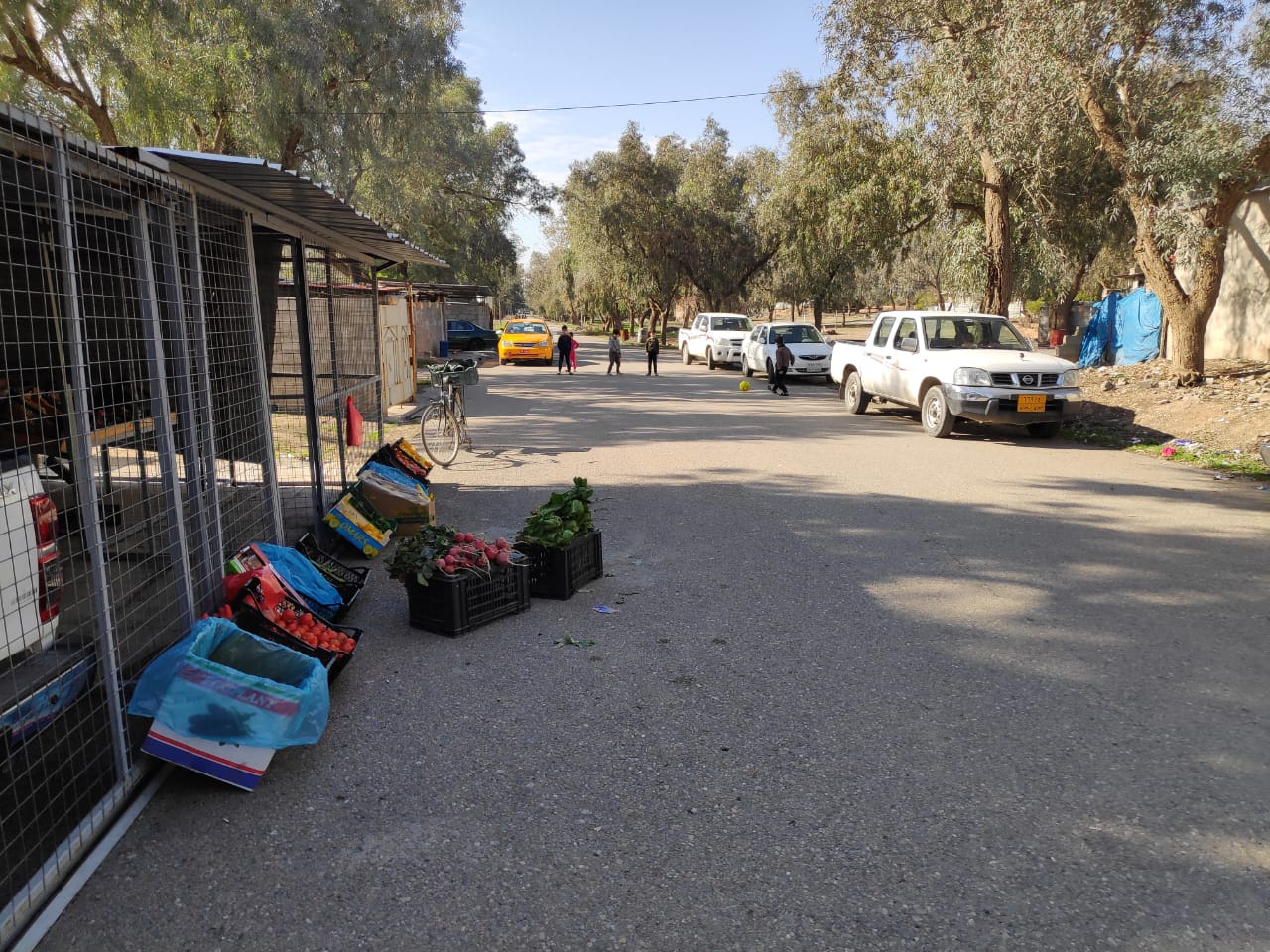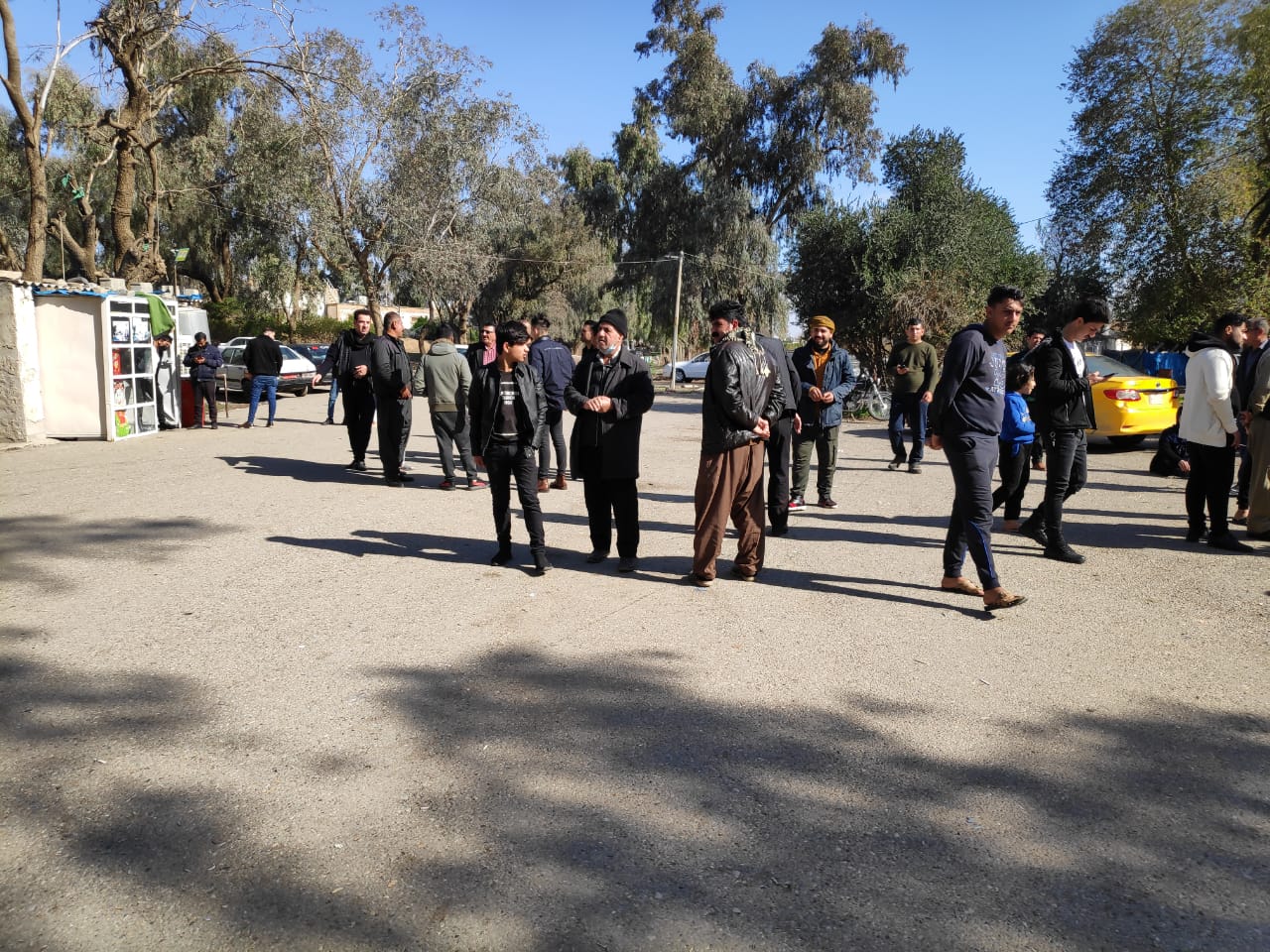North Oil Company of Kirkuk temporarily suspended process of evacuation and demolition hundreds of houses built on its plots of land amid protests of residents supported by Kurdish members of Iraqi parliament.
The company running Kirkuk oil fields last week asked residents of 280 houses on its property in Musayyaja neighborhood to evacuate the houses built without permission in 2003 in order to demolish it.
Kurdish residents of these houses protested the decision as some of them have been arrested by local security forces and later were out on bail. Kurdish MPs of Kirkuk in Iraqi parliament support delay of the process till fair compensation of the residents.
"We asked the director of oil company to stop the demolition process and we will discuss it with oil ministry in order to postpone these steps up to formation of a fair government and a solution to satisfy the residents," Rebwar Taha, Kurdish MP of Iraqi parliament and deputy of oil and energy parliamentary committee, told KirkukNow.
"We asked the director of oil company to stop the demolition process and we will discuss it with oil ministry in order to postpone these steps up to formation of a fair government and a solution to satisfy the residents," Rebwar Taha, Kurdish MP told KirkukNow.
Taha said that they will try to keep the houses as the current government cannot compensate the families while the "current administration of Kirkuk is unfair."
The problem is dated back to 17 years ago when Kurdish parties gave away these lands after toppling Saddam region to these families whom built the houses without official permission or documents proving its ownership.

Al-Musayyaja bloc in Arafa neighborhood in February 2021. Photo by Goran Baban
"The company is not in need for the lands at the moment so it can wait for several years otherwise we will not these houses to be destructed," Taha insisted.
Residents are willing to evacuate once they are compensated as they do not feel safe to frequent raids by security forces.
Shamsa Rahim, an elderly resident of Al-Musayyaja, is still afraid of police raids despite frequent visits by Mps to ensure their safety and rights.
"Let them hurry up and give us a piece of land and we will evacuate these houses soon but if we evacuate it now where should we go," Rahim ws wondering.
"Let them hurry up and give us a piece of land and we will evacuate these houses soon but if we evacuate it now where should we go," Rahim ws wondering.
Iraqi parliament speaker, Bachir Haddad, a Kurd, ensured in a statement earlier this week, the process of evacuation has been stopped and no one will be forced to leave without a solution.
After ousting Saddam Hussein regime in 2003, thousands of houses were built illegally all over Iraq and particularly in Kirkuk. Kirkuk local authorities decided to launch campaigns to impose law and put an end to these trespass on government properties in celebration square and Panja Ali but all were suspended temporarily due to the complicated texture of Kirkuk community.
The oil-rich city of Kirkuk, 240 km north of Baghdad, is Iraq’s 5th largest with an estimated population of 900,000 Kurds, Arabs, and Turkmen. It is one of the main disputed areas that a three-stage process outlined in Article 140 of the Iraqi constitution in 2005, stipulating normalization, a population census and a referendum on the status of the territories, was drawn to put an end to Kurdistan region government KRG-Iraqi Federal government dispute over these areas.
Dilshad Mohammed, resident of Musayyaja, was imprisoned for four days for protesting the evacuation order. He was freed for a 10M Iraqi Dinars (about $7,000) bail.
"They gave me only one week to evacuate, I don't know what to do then?" Mohammed asked for a document proving suspension of evacuation to persuade related authorities and security forces.
Kurdish MPs in the Iraqi parliament representing Kirkuk believe this is violation of Iraqi constitution and they will put effort to put an end for the issue forever.
The decision was not cancelled completely and they will do that in Baghdad, Jamal Shukur, Iraqi parliament member from Kirkuk, said.
"This is violation of article 140 of Iraqi constitution that the government has to handle by compensation," he added. "Hidden hands agitate the case and pose a big threat."





